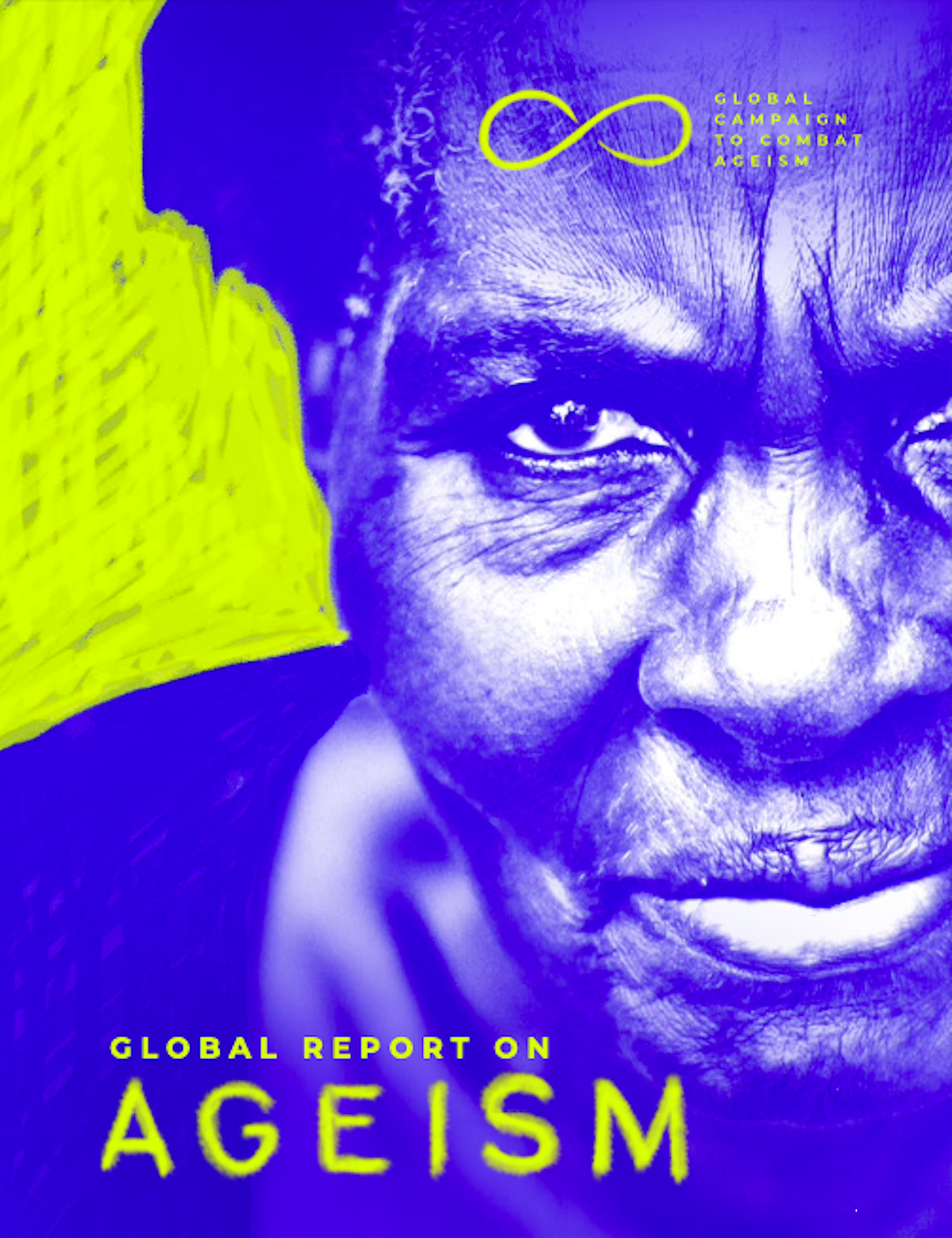The WHO Global Report on Ageism is available here.
Excerpt from the Report (p. XV):
"EXECUTIVE SUMMARY
Age is one of the first things we notice about other people. Ageism arises when age is used to categorize and divide people in ways that lead to harm, disadvantage and injustice and erode solidarity across generations. Ageism takes on different forms across the life course. A teenager might, for instance, be ridiculed for starting a political movement; both older and younger people might be denied a job because of their age; or an older person might be accused of witchcraft and driven out of their home and village.
Ageism damages our health and well-being and is a major barrier to enacting effective policies and taking action on healthy ageing, as recognized by World Health Organization (WHO) Member States in the Global strategy and action plan on ageing and health and through the Decade of Healthy Ageing: 2021–2030. In response, WHO was asked to start, with partners, a global campaign to combat ageism.
The Global report on ageism was developed for the campaign by WHO, Office of the High Commissioner for Human Rights, the United Nations (UN) Department of Economic and Social Affairs and the United Nations Population Fund. It is directed at policy-makers, practitioners, researchers, development agencies and members of the private sector and civil society. This report, after defining the nature of ageism, summarizes the best evidence about the scale, the impacts and the determinants of ageism and the most effective strategies to reduce it. It concludes with three recommendations for action, informed by the evidence, to create a world for all ages.
The nature of ageism
Ageism refers to the stereotypes (how we think), prejudice (how we feel) and discrimination (how we act) directed towards people on the basis of their age. It can be institutional, interpersonal or self-directed. Institutional ageism refers to the laws, rules, social norms, policies and practices of institutions that unfairly restrict opportunities and systematically disadvantage individuals because of their age. Interpersonal ageism arises in interactions between two or more individuals, while self-directed ageism occurs when ageism is internalized and turned against oneself.
Ageism starts in childhood and is reinforced over time. From an early age, children pick up cues from those around them about their culture’s stereotypes and prejudices, which are soon internalized. People then use these stereotypes to make inferences and to guide their feelings and behaviour towards people of different ages and towards themselves.
Ageism often intersects and interacts with other forms of stereotypes, prejudice and discrimination, including ableism, sexism and racism. Multiple intersecting forms of bias compound disadvantage and make the effects of ageism on individuals’ health and well-being even worse."
